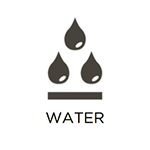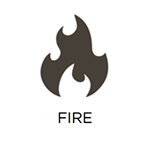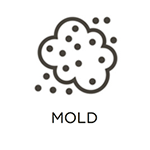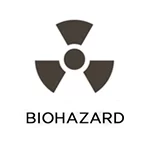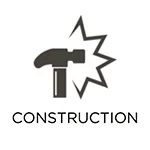RestorationMaster
In St. Johns, FL, the high humidity levels, combined with frequent rain and warm temperatures, create an environment where mold can flourish. Homes and buildings that are not properly ventilated or have moisture issues are particularly susceptible to mold growth. Common sources of moisture that contribute to mold include leaks in roofs, plumbing, or windows, as well as poor ventilation in bathrooms and kitchens. The presence of mold in St. Johns can lead to various health issues, especially for individuals with respiratory problems or weakened immune systems. Mold spores can be released into the air and inhaled, causing allergic reactions, respiratory symptoms, and even infections in some cases. It’s essential to address any mold problems promptly to prevent health risks and further damage to the property.
At RestorationMaster, we remove mold from residential and commercial properties in St. Johns, FL through our mold remediation services. Our technicians will find and remove all mold and clean your property using high-end cleaning equipment and techniques. We will also restore any areas damaged by the mold.

Mold growth is facilitated by three essential factors: oxygen, a food source (such as cellulose found in organic materials), and a moisture source. Consequently, it is crucial to address any water damage and take steps to ensure that vulnerable areas, such as basements, remain dry. Failure to control moisture can create an environment conducive to mold growth. Once mold begins to grow, eliminating it can be a challenging task.
Mold can damage various structures and appliances, including:
- Walls and Ceilings: Mold can cause discoloration, deterioration, and weaken structural integrity.
- Wood: Mold can lead to wood rot, warping, and decay in wooden structures and furniture.
- Insulation: Mold growth can deteriorate insulation materials.
- Carpeting and Upholstery: Mold can cause stains, odors, and degrade these materials.
- HVAC Systems: Mold can contaminate air ducts, filters, and coils, affecting indoor air quality.
- Electronic Devices: Mold growth can corrode circuit boards, leading to malfunctions.
- Plumbing Systems: Mold in pipes can damage the plumbing system and contaminate water supply.
Prompt action is crucial to prevent further damage and maintain a healthy environment.
Mold can cause a range of issues, including:
- Weakened structures: Mold can deteriorate organic materials such as wood, drywall, and insulation. Over time, it can weaken the structural integrity of walls, floors, and ceilings. This can result in sagging, warping, or even collapse in severe cases.
- Rotting and decay: Mold feeds on organic matter, and prolonged exposure can lead to rotting and decay of building materials. This can compromise the stability and functionality of the affected components, requiring extensive repairs or replacements.
- Damage to surfaces: Mold can cause discoloration, staining, and degradation of various surfaces, including walls, ceilings, carpets, and furniture. These damages can be costly to repair or may necessitate complete replacement.
- Compromised insulation: Mold growth in or around insulation materials can reduce their effectiveness. Mold can degrade insulation properties, leading to decreased energy efficiency and potentially higher heating or cooling costs.
- Odor and air quality issues: Mold produces a distinct musty odor that can permeate throughout a property. This odor can be difficult to eliminate and may persist even after the mold is removed. Additionally, mold spores can become airborne, leading to poor indoor air quality and potential respiratory issues for occupants.
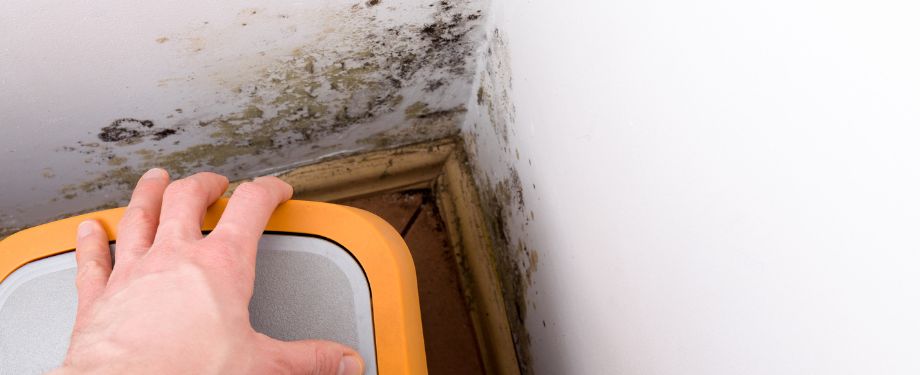
When dealing with mold-related structural damage, it’s essential to seek the assistance of professionals like your local RestorationMaster partner in St. Johns, FL. We specialize in mold remediation services and can provide expert assistance in addressing the consequences of mold growth.
Your local RestorationMaster partner in St. Johns, FL, can offer the following services:
- Thorough inspection and assessment: Their experienced technicians will conduct a detailed inspection of the affected areas, identifying the extent of the mold growth and assessing any structural damage caused.
- Effective mold removal: Utilizing industry-standard techniques and equipment, your local RestorationMaster partner will safely and efficiently remove the mold, minimizing the risk of further contamination and structural deterioration.
- Comprehensive cleaning and disinfection: After mold removal, they will perform thorough cleaning and disinfection of the affected surfaces to eliminate any remaining mold spores and prevent regrowth.
- Structural repairs and restoration: If mold-related structural damage has occurred, your local RestorationMaster partner can provide professional restoration services. This includes repairing or replacing damaged materials to restore the structural integrity of your property.
By partnering with your local RestorationMaster team in St. Johns, FL, you can benefit from their expertise in mold remediation and their commitment to providing quality services. The knowledge and experience in dealing with mold-related structural damage will help ensure that your property is restored to a safe and healthy condition. Remember, it’s crucial to address mold-related structural damage promptly and efficiently to prevent further harm to your property.
Call us for Mold Remediation Services
When faced with a mold problem that demands professional attention, don’t hesitate to contact your local RestorationMaster partner, in St. Johns, FL. Call us at (904) 559-3223. We are dedicated to resolving the issue promptly and efficiently. Our team of experts is available 24/7 to provide immediate assistance.
Answers to your Top Mold Questions
Q: Can mold grow in carpets?
A: Yes, mold can grow in carpets under certain conditions. Carpets provide a suitable environment for mold growth if they become wet or damp and are not dried promptly. Spills, leaks, or high humidity levels can contribute to moisture accumulation in carpets, creating an environment conducive to mold growth. Regular cleaning and maintenance of carpets, along with prompt drying of any moisture, can help prevent mold growth.
Q: Can mold grow in HVAC systems?
A: Yes, mold can grow in HVAC (Heating, Ventilation, and Air Conditioning) systems if there is a moisture problem. HVAC systems can create a favorable environment for mold growth if there is condensation or water accumulation within the system. Moisture can occur due to leaks, high humidity, or inadequate drainage. Mold growth in HVAC systems can spread spores throughout the building, potentially leading to indoor air quality issues. Regular inspection, maintenance, and cleaning of HVAC systems, along with controlling moisture levels, are important to prevent mold growth.
Q: Can mold grow in dry environments?
A: Mold requires moisture to grow, so in general, mold is less likely to grow in dry environments. However, it’s important to note that certain types of mold can still grow and thrive even in low-moisture conditions. For example, some molds can survive and grow in materials with high cellulose content, such as drywall, even when the relative humidity is relatively low. Additionally, mold spores can remain dormant until they encounter a suitable environment with moisture. While dry environments are less favorable for mold growth, it’s still important to address any moisture issues promptly to prevent mold growth, even in seemingly dry environments.


